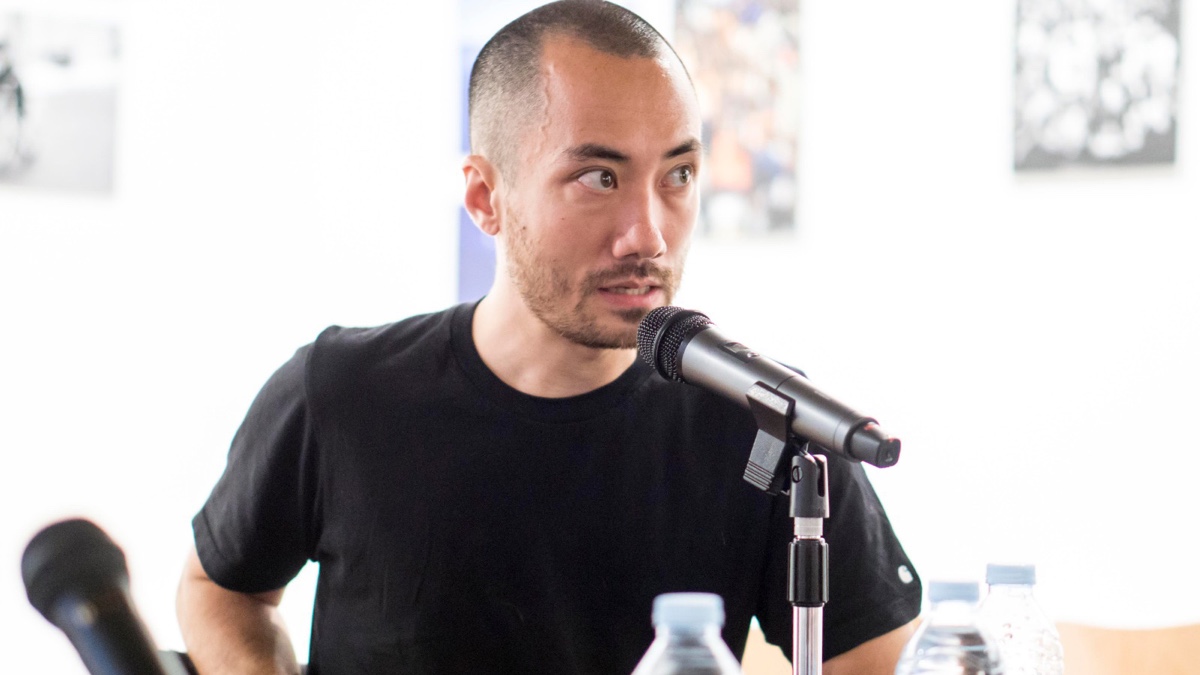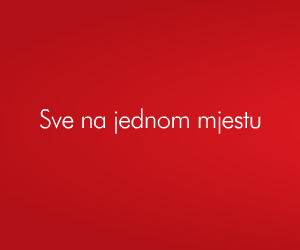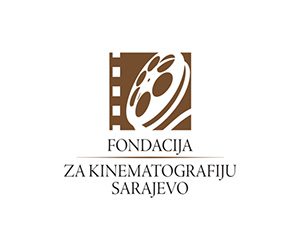
22/08/2019
Beatings at the border have changed the European dream
Jaime
Alekos, a young journalist and director, whose film ‘Tauromachy’ won the award
for the best short documentary film at last year’s Mediterranean Film Festival,
comes to Široki Brijeg again this year with the film ‘The European Dream:
Serbia’.
This is a
documenatry that speaks about about the tortures of Hungarian police to the
refugees and migrants they catch trying to cross their border and the harsh
living conditions in which they survive in Serbia awaiting an opportunity to
enter the EU. Alekos pointed that he had witnessed the brutality that is officially denied by everyone and exactly this is the reason why migrant changed their route in search for a better life. In our conversation Alekos speaks about journalism and says that it is in crisis as well as the audience which just wants to confirm their preconceived image about the world.
You are an investigative journalist and at the same time you make documentaries, how do you find the balance between these two formats and at what point does the journalistic story grow into something more?
As a filmmaker with a background in photography, it's mandatory for me that the story works visually. It must have elements that can tell the 5 W's in images, without using a voiceover or text on screen. I must be able to witness most part of the story and for what I can't shoot, I must be able to verify it and evoke it properly with other related images.
How did you get to the topic of refugees on the Hungarian-Serbian border?
Some months before starting this story I was working in Greece. First in Lesbos, covering the arrivals from Turkey, and then I moved to Idomeni, in the border with Macedonia, in March 2016, when the countries from the Balkan Route shut their borders. It was clear that people were going to get stuck and that would cause trouble. And almost a year after that, in January 2017, migrants were still stuck in the Balkans. For me, working in Serbia was a natural follow up of the work I did in Greece. It was -15º in Belgrade and initially it was planned as a short trip to Belgrade to cover how the cold wave was affecting the migrants, working as a freelance for news agencies and TV channels. Most of the visual part of the documentary was shot on this trip. Once there, literally everyone I spoke to was telling me that Hungarian police tortured them when they got caught trying to cross their border. So I planned a second trip, just to do the interviews and finish some visual details I still wanted to do. Cesar Dezfuli, a Spanish photographer who had worked on Serbia before, introduced me to Javed Khan, a migrant from Afghanistan who had previously worked as an English teacher in Pakistan and Afghanistan. He's absolutely clever and sensitive and he understood very well they way I work, so I trusted him enough to let him improvise his own questions during the interview if that would make it flow better. He did an excellent work. Apart from that and the music, I did everything by myself: production, shooting, editing and post production.
Did you have any problems while shooting the film?
When I had already filmed all the interviews, I came back to Spain and planned a third trip to Serbia. I knew that Hungarian police used doors in the fence to push back the migrants, so I got a Sony A7SII, which films with almost no light, and went back to the border. Since Hungarian police was entering Serbian soil when doing the pushback, I knew there was a chance to film the beatings if I could find the doors and managed to ambush with a long lens. I found out it was impossible to do. They detected me with their night vision goggles from 500 meters in full darkness. And when I could get closer in a forest area, dogs would hear me from 100 meters. At least, while researching the fence, I shot the patrol car screaming and playing music, which helped a lot to tell the story.
Where you trying to contact the Hungarian police? Also, what are the reactions of the local people to the brutality that takes place in their area?
I contacted the Communication Service of the Ministry of Interior and the Police Headquarters, who declined to make any comment and directed me to the Office of the Prosecutor General. When asked about the claims made by the migrants I interviewed – I provided a precise list of facts, places and dates – they did not answer the question, sending some statistics about complaints against the police in the border instead. When I asked again, they answered that they did not have any record of complaints against the police in that area and date. I can't tell you about the reaction of the local people in Kelebia or Ásotthalom because I didn't cover that angle.
How do you comment on the rhetoric of the populist Hungarian Prime Minister Viktor Orban and state that the 'reverse migration' process has started to develop drastically?
The beatings worked. When I was working in the border I can tell you that the tortures to the migrants they caught were systematic. I can't prove there were orders from above to do so, but that can only be caused because of that or because the police was totally out of control, which would make no sense. At the end, the beatings caused that migrants were so afraid of Hungarian police that theyorganically changed the route and started trying to get to Central Europe through Romania or Croatia, instead of Hungary.
They also call him the 'patron of Christians'?
Well, even though he really has a lot of support in Hungary, there's nothing Christian in beating and abusing kids to defend their border.
What was your goal with this movie?
Miguel Ángel Bastenier, from whom I learnt how to think as a journalist, used to say that journalism does not aim to make a better world, but to make reliable information that allows society to be more conscious of itself. And that, sometimes, if society gets more conscious of itself, that makes the world better. So I just tried to build a solid story that worked visually and that, hopefully, allows society to become a little more conscious of itself.
The film has won a lot of awards, it could be said that, unlike the political world, the film world cares about what is happening to migrants?
It's been screened now in more than 20 countries (not in Hungary), so I couldn't be happier with the interest and the reception the documentary is getting. Definitively the audience of the film world wants to know about what happens to migrants.
At the end of 'The European Dream', one of the protagonists of the film, stating the reasons for their departure from Afghanistan, says that they just wanted to make their lives better, but in the way they now live, 'death would be better'. Have these people completely lost hope, what keeps them alive?
I lost track of Ubaidullah, the kid at the end of the documentary, after I left Serbia, but a friend of mine who works with migrants spotted him in Paris, he was living on the streets. All the interviewees managed to get out of Serbia, after trying and trying again. Most of them are now in France and Italy, waiting for a resolution for their cases, which probably will get rejected. My translator and Abdul managed to get to Switzerland and Austria and get the papers, they are struggling to start a new life there. Hope can be something really fragile; I think it's just pure animal, survival instinct. Surrendering is not an option.
In an earlier interview, you stated that today is a difficult time for journalism and journalists because of the low interest of society in professional and reliable information. Did this story confirm your thesis and has anything changed since then regarding your activism and dedication to the profession?
I'm still pessimistic about journalism. I do a lot of newspaper analyses, quality has even dropped in the last year and the audience sill doesn't care. Most part of the audience just wants to confirm its preconceived idea of the world. Independent, reliable journalism exists but it's a very small niche.
At last year's festival, your movie, 'Tauromaquia', won the first award in the category of short documentary. Unfortunately, you were not present at the awards ceremony ... this is now the opportunity to tell us something?
'Tauromaquia' was my first documentary and it's also very personal, it's a story I had been thinking about since I was a teenager. I care a lot about this story and it took me a lot of effort to do it, so the award was an immense joy. Just thank to the jury and everyone working in the festival, because you allowed my story to travel further.


